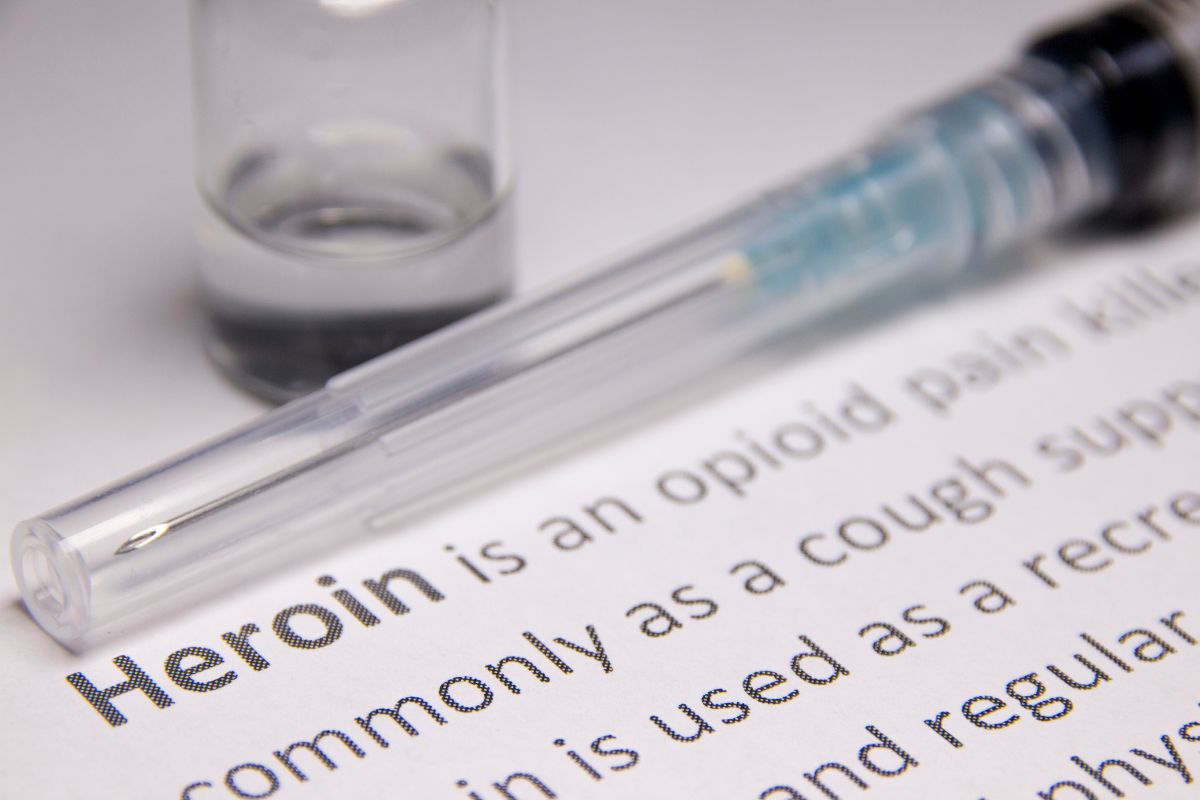
Deciding to get help for heroin use disorder is difficult. Once your body has become dependent on the drug, the idea of entering a heroin rehab in Arizona can be overwhelming. Going through treatment requires you to change almost everything about your life. Sometimes recovery includes facing past traumas or coping with a mental health concern healthily.
In the past 12 months, approximately one million people have had a heroin use disorder.1 The number of deaths from heroin overdose has declined since 2019, but the number has increased overall since 1999.2 The hard truth is, the longer a person uses heroin, the more their chance of overdose increases and the more potential health risks they face.
What Is Heroin?
Heroin is processed from morphine, which is extracted from opium poppies. In its pure form, heroin is a white powder. The crude processing methods used to produce brownish or “black tar” heroin leaves behind impurities that cause the darker color. Heroin may be cut with various ingredients, including powdered milk, sugar, or quinine.
Heroin is a Schedule I drug, meaning the DEA considers it highly addictive.3 There is no accepted medical use for heroin. The drug is typically injected intravenously. Heroin may also be smoked by heating the drug above a flame and inhaling the vapor. All methods of ingestion are dangerous and can lead to addiction.
How Heroin Affects the Brain
Chemicals called neurotransmitters bind to receptors in the brain known as mu-opioid receptors. When activated, mu-opioid receptors help to regulate pain and promote feelings of well-being through the release of certain hormones.4
Heroin activates the mu-opioid receptors and interferes with the body’s natural output of dopamine. Each time a person uses heroin, they reinforce activity in the brain’s reward center. The human brain is always trying to create balance. The brain decreases its natural dopamine production because heroin has essentially taken over the job.
This cycle leads to drug dependence. Once the brain stops producing dopamine, it becomes dependent on heroin to do the job. When people stop using heroin suddenly, they experience strong physical cravings and other mild to severe withdrawal symptoms.
Signs You Need Heroin Rehab in Arizona
Whether you’re concerned about your heroin use or that of a loved one, talking about heroin addiction treatment is complex. Though it’s hard, starting a dialogue could save a life. The signs of a heroin use disorder are easy to spot if you know what to look for.
Physical Symptoms of Heroin Abuse
Noticing changes in a person’s health or physical behaviors may be the first warning sign of a problem. Symptoms to be aware of include:
- Flushed skin
- Falling asleep suddenly or “nodding out”
- Slow breathing
- Constricted pupils
- Itching
- Vomiting
- Confused thinking
- Inability to make decisions
- Memory loss
Heroin can also cause constipation. If someone you know is complaining about constipation or you notice they frequently need laxatives, it could be a warning sign of heroin abuse.
The Presence of Drug Paraphernalia
Eventually, people may stop trying to conceal their use or simply forget to hide drug paraphernalia as carefully as they once did. Pipes, bent or burnt-looking spoons, rubber tubing, and I.V. needles are heroin-related equipment.
Social Changes
Over time, people using heroin begin changing their life to accommodate their drug use. Some of the social and lifestyle changes to be aware of include:
- Isolating or having an all-new group of friends you don’t know
- Not meeting personal responsibilities, such as showing up for work or school
- A lack of interest in activities they once enjoyed
- Unexplained financial problems
- Valuable items are missing or have been sold
- Poor personal hygiene
As a person’s addiction becomes more severe, they may steal, even from their loved ones, to pay for drugs. If someone you know is exhibiting several warning signs, they may need heroin rehab.
Long-Term Health Effects of Heroin
If you or someone you love is struggling with a heroin use disorder, finding a heroin rehab in Arizona as soon as possible could save their life. The long-term effects of heroin may include:
- Organ damage
- Damage to the immune system
- Infectious disease from sharing needles
- Damage to the circulatory system
- Heart attack
- Stroke
- Fatal overdose
Dangerous additives are another reason to be concerned about heroin use. Some additives can cause death within minutes, and it’s challenging to detect them before they’ve been ingested.
Get Help from a Heroin Rehab in Arizona
To help, start by talking to the person about their drug use. Let them know you love and support them, but also set healthy boundaries to avoid enabling their behavior. Contact Silver Sands Recovery for information about our treatment programs and to learn more about coping with heroin use disorder.
Sources:
[1] https://nida.nih.gov/publications/research-reports/heroin/scope-heroin-use-in-united-states
[2] https://www.cdc.gov/drugoverdose/deaths/heroin/index.html
[3] https://www.dea.gov/drug-information/drug-scheduling
[4] https://nida.nih.gov/publications/research-reports/heroin/what-are-long-term-effects-heroin-use

